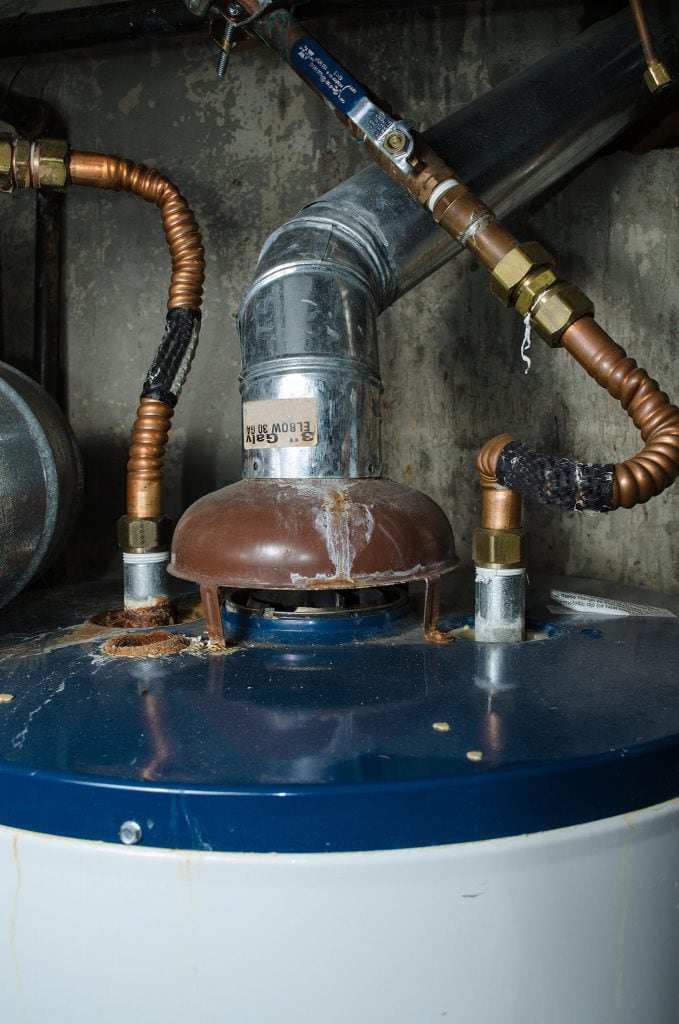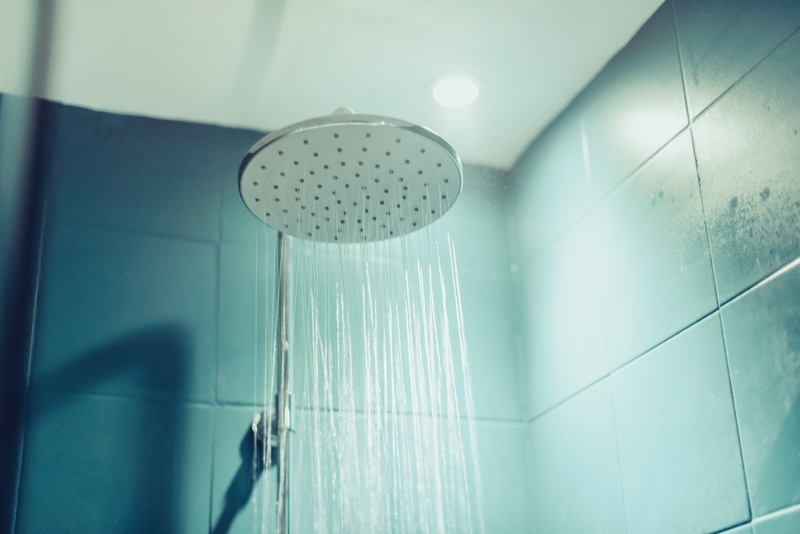Leaking Water Heater: How To Spot It And What to Do

Signs of a Leaking Water Heater (And What to Do About It)
Even a small leak in a water heater can turn into a big problem quickly. So, it’s essential to know how to spot this problem and what to do about it.
And, in this article, we’ll focus on just that. We’re looking at the obvious and more subtle signs this is happening. Then, we’ll tell you what to do, and even how to save some money if you need a quick replacement.
Meanwhile, if you’re noticing a blinking light on your unit, check out how to diagnose the problem here.
Or, read up about ways to prevent this and other plumbing problems.
But, if you think there’s a leak, that takes priority. So, keep reading here first.
How to Spot a Leaking Water Heater
The most obvious way to spot a leaking water heater is by checking for water dripping or collecting around the unit. But, some indirect signs are:
- Rust In Your Water
- Hot Water Runs Out Faster Than Usual
- Your Energy Bills Keeping Rising
- The Unit Is Old
Let’s look at each of these a little closer.
Checking For a Leak
If you suspect a leak, inspect the unit and the area around it. Look for drips and pooled water and listen for the sound of water dripping.
Depending on how your unit is set up, it may be hard to see all around it. So, bring a flashlight and use your ears, too.
Rust In Your Water
Finding rust in your water could mean a leak. These leaks often occur because the unit is rusting from the inside out.
Even before water starts escaping, this process can result in rust that’s inside the unit mixing with the water you’re getting through your faucets and showerheads.
If you notice this, check your unit.
Hot Water Runs Out Faster Than Usual

Since the system suddenly can’t provide enough hot water, you’ll notice it run out sooner than it has in the past.
If this is happening, and your water usage hasn’t changed, check for a leak or call a professional.
Your Energy Bills Keeping Rising
There are a few problems that can cause your energy bills to rise suddenly. A leaking water heater is one of them.
So, if you’ve noticed other problems along with a bill suddenly going up, that’s another clue.
In this case, the system is using more resources (gas or electric) to heat more water. Since it’s escaping, it needs more than usual.
Likewise, water escaping means more water going into the tank to keep it full.
Age of the Unit
To be clear, just because a unit’s old doesn’t mean it’s sprung a leak. So, if you’ve had it for years and notice these other symptoms, check for this problem.
Also, note that these appliances don’t last nearly as long as they once did.
We’ve seen units ten years and older last up to 30 years. That’s especially if the homeowner has kept it maintained by a professional.
However, many new ones last less than a decade. The reason is old ones are made of more pure metal. More modern units use different mixtures and recycled metal.
It’s better for the environment, but unfortunately, they don’t last nearly as long.
What To Do If You Suspect Your Water Heater’s Leaking
If you think your water heater has a leak, call a professional immediately. While it may only be a slow drip right now that can change quickly — and for the worst.
Most times, this problem occurs because the unit is rusting out from the inside. Eventually, it eats away enough that a small hole forms on the outside.
But, in this case, it’s sort of like an iceberg: You’re only seeing the tip of the problem.
There’s a lot more rust and corrosion inside the unit. All you’re seeing is the one spot that — for now — broke down so much that an opening formed.
But, now, you’re getting more oxygen into the tank. That speeds up the oxidation process.
Rust forms much quicker, and the inside is already compromised. So, it’s not long before the larger area around that one small hole busts wide open.
And, when that happens, all the water in your tank — anywhere from 20 to 60 gallons, usually — suddenly spills into your home.
At that point, you’re dealing with massive water damage along with appliance troubles.
Fortunately, you can avoid this problem by calling a pro as soon as you spot a leak.
Saving Money on a New Water Heater in South Jersey
There’s good news for homes in Ocean City, Avalon, Marmora, and other South Jersey towns: You can save money on your new unit thanks to rebates from New Jersey Clean Energy and South Jersey Gas.
Both of these groups offer incentives for homeowners to purchase energy-efficient units.
In other words, these new models that perform the same or better as older ones, but use much less gas, oil, or electricity to do so.
Depending on the model you get, South Jersey Gas offers $600 in rebates when you replace your water heater along with your furnace or boiler.
And, New Jersey Clean Energy offers $300 to $700 in rebates. Or, you can get up to $950 back if you also replace a furnace at the same time.
Of course, there are requirements for these, which you can see on their websites here and here. As a result, you’re looking at purchasing a more expensive unit than a baseline model.
But, the rebates will defray most, if not all, of the difference. And, when you use less energy, you save more money over time through lower utility bills.
And, in some instances, you can combine the rebates. But, it’s important to understand the requirements of each one. That way, you’re sure your new unit qualifies, and there’s no overlap between the programs that prevent you from taking advantage of both.
It’s a lot to consider, but you don’t have to go it alone. At Broadley’s, we can not only help you find the perfect new appliance for your home. We’ll also walk you through the rebate process to take advantage of every possible offer.
And, we’ll handle the paperwork, so you know all the technical information is filed and submitted correctly.








